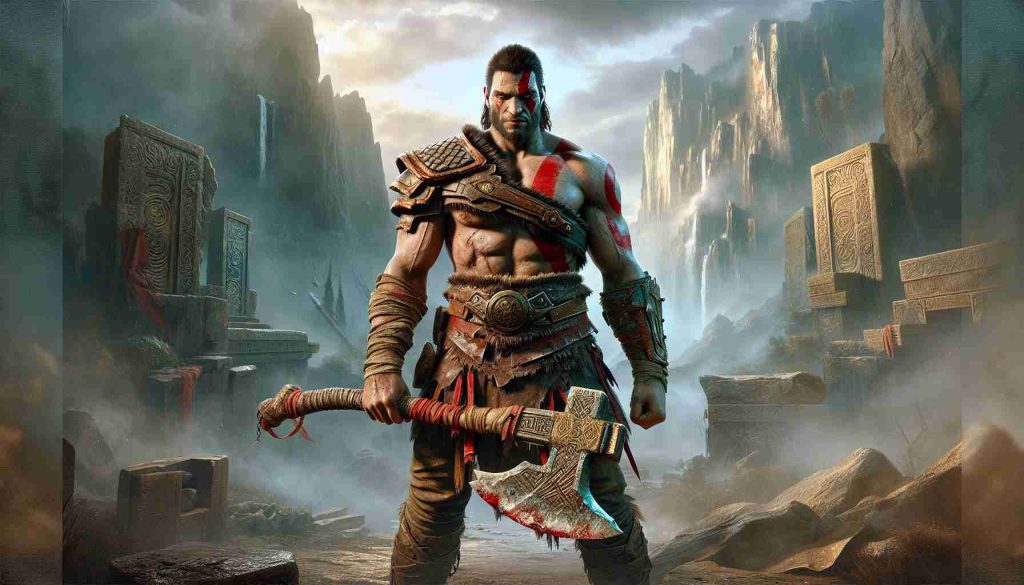Summary:God of War, released in 2005, is a critically acclaimed action-adventure game developed by Santa Monica Studio and published by Sony Computer Entertainment. Initially designed for the PlayStation 2, the game has been lauded for its engaging narrative, majestic set pieces, innovative gameplay, and its deep integration of Greek mythology. The game follows the story


Summary:
God of War, released in 2005, is a critically acclaimed action-adventure game developed by Santa Monica Studio and published by Sony Computer Entertainment. Initially designed for the PlayStation 2, the game has been lauded for its engaging narrative, majestic set pieces, innovative gameplay, and its deep integration of Greek mythology. The game follows the story of Kratos, a Spartan warrior tricked into killing his own family, who serves the Olympian gods in the hopes of ridding himself of the nightmares that haunt him.
Gameplay and Narrative:
Players control Kratos in a third-person perspective, progressing through various levels that combine combat, puzzle-solving elements, and platforming. The combat is a notable aspect involving a pair of chained blades, which became iconic weapons in the gaming world. The puzzles are intertwined with the environment and often involve mythological elements, providing a deep sense of immersion into the ancient world. The game’s storyline involves Kratos’s journey to prevent the god Ares from destroying the city of Athens, his quest to find the powerful Pandora’s Box, and the ultimate goal of exacting revenge on Ares.
Technical and Artistic Merit:
God of War stood out for its impressive graphics and art direction for the time, with detailed character models and expansive environments. The game’s soundtrack also received praise for its cinematic qualities and its contribution to the game’s epic feel.
Impact and Legacy:
Upon release, God of War received widespread critical acclaim, with high marks for its storytelling, gameplay mechanics, and technical achievements. It has been credited with influencing subsequent action games, particularly within the hack and slash genre, and has spawned a successful franchise, including several sequels and spin-offs.
Critical Reception and Awards:
God of War won several “Game of the Year” awards and received multiple other accolades. It was praised for redefining the action genre, with many critics hailing it as one of the best video games ever made.
Cultural Influence:
The game’s influence extends beyond the gaming industry, impacting how Greek mythology is portrayed in modern media and contributing to the mainstream acceptance of video games as a legitimate storytelling medium.
Commercial Success:
God of War achieved great commercial success, selling millions of copies worldwide and becoming one of the best-selling PlayStation 2 games of all time.
FAQ about God of War 2005 Video Game
What consoles is God of War available on?
God of War was originally released for the PlayStation 2. It has since been re-released and remastered for other PlayStation platforms and is part of God of War Collection.
Is God of War an open-world game?
No, God of War is not an open-world game. It is structured around a series of levels connected by a central storyline.
Who is the main character in God of War?
The main character in the game is Kratos, a Spartan warrior on a quest against the Olympian gods.
Can I play God of War on the PC?
As of my last update, the original God of War game isn’t officially available on PC. Only later titles, like God of War (2018), received a PC release.
What is the ESRB rating for God of War?
God of War has an ESRB rating of “M” for Mature, due to its violent content and themes.
How long does it take to complete God of War?
On average, it takes about 10-12 hours to complete the main story, with additional time for completing various side objectives and reaching 100% completion.
Is there multiplayer in God of War?
The original God of War is a single-player game. Later entries in the series would introduce multiplayer elements.
Sources:
For more information, please visit the official domains:
– playstation.com
– esrb.org
– santamonicastudio.com

Iwona Majkowska is a prominent figure in the tech industry, renowned for her expertise in new technologies, artificial intelligence, and solid-state batteries. Her work, often at the forefront of innovation, provides critical insights into the development and application of cutting-edge AI solutions and the evolution of energy storage technologies. Majkowska’s contributions are pivotal in shaping the future of sustainable energy and intelligent systems, making her a respected voice in both academic and industrial circles. Her articles and research papers are a valuable resource for professionals and enthusiasts alike, seeking to understand the impact and potential of these transformative technologies.
!function(f,b,e,v,n,t,s){if(f.fbq)return;n=f.fbq=function(){n.callMethod?n.callMethod.apply(n,arguments):n.queue.push(arguments)};if(!f._fbq)f._fbq=n;n.push=n;n.loaded=!0;n.version=’2.0′;n.queue=[];t=b.createElement(e);t.async=!0;t.src=v;s=b.getElementsByTagName(e)[0];s.parentNode.insertBefore(t,s)}(window,document,’script’,’https://connect.facebook.net/en_US/fbevents.js’);fbq(‘init’,’448962470350720′);fbq(‘track’,’PageView’)
 Internet Connectz
Internet Connectz 










Leave a Comment
Your email address will not be published. Required fields are marked with *